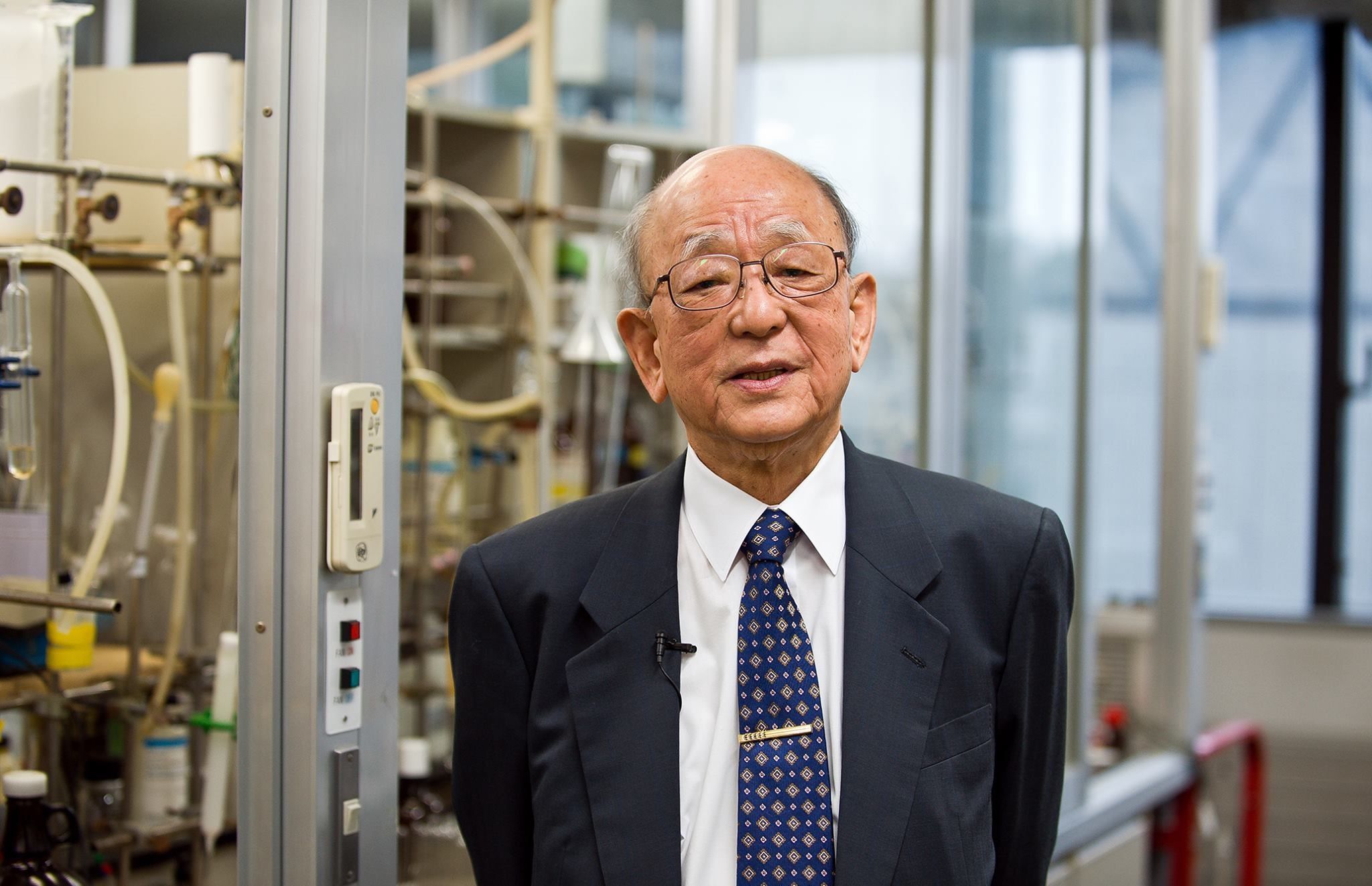
Dr. Akira Suzuki, the renowned Japanese chemist, is a true enigma in the world of science. With a career spanning over several decades, his contributions to the field of organic synthesis have revolutionized the way we approach chemical reactions. From his groundbreaking discoveries in the cross-coupling reactions to his Nobel Prize-winning work on palladium-catalyzed carbon-carbon bond formation, Dr. Suzuki has left an indelible mark on the scientific community.
In this article, we will delve into the fascinating journey of Dr. Akira Suzuki and uncover 19 intriguing facts about his life and work. From his humble beginnings in Japan to his stellar achievements on the global stage, Dr. Suzuki’s story is one of perseverance, intellect, and unwavering dedication to the pursuit of knowledge. Get ready to be captivated by the mysteries and accomplishments of this extraordinary scientist.
Key Takeaways:
- Dr. Akira Suzuki revolutionized organic chemistry with his groundbreaking work, earning the Nobel Prize and inspiring young scientists to pursue their passions and make a difference in the world of science.
- His Suzuki-Miyaura reaction has shaped the future of organic chemistry, leading to the development of life-saving drugs and inspiring global collaboration among scientists, proving that humble beginnings can lead to extraordinary achievements.
Dr. Akira Suzuki revolutionized organic chemistry.
With his groundbreaking work in palladium-catalyzed cross-coupling reactions, Dr. Suzuki significantly advanced the field of organic synthesis.
He was born on September 12, 1930, in Japan.
Dr. Suzuki’s birthdate holds special significance as it aligns with the start of the academic year in Japan.
Dr. Suzuki pursued his education at Hokkaido University.
He obtained his bachelor’s, master’s, and doctorate degrees in chemistry from Hokkaido University, establishing a strong foundation for his illustrious career.
His most notable achievement is the Suzuki-Miyaura reaction.
The Suzuki-Miyaura reaction, named after Dr. Suzuki and his colleague Prof. Akira Miyaura, allows for the synthesis of complex organic molecules, making it a valuable tool in pharmaceutical research and production.
Dr. Suzuki’s research has been widely recognized.
His groundbreaking work earned him numerous awards, including the Nobel Prize in Chemistry in 2010, which he shared with Prof. Richard F. Heck and Prof. Ei-ichi Negishi.
He spent his academic career at Hokkaido University.
After completing his education, Dr. Suzuki joined the faculty at Hokkaido University, where he conducted his research and mentored numerous budding chemists.
Dr. Suzuki has published over 400 scientific papers.
His extensive body of work has contributed immensely to the field of organic chemistry, serving as a reference for chemists worldwide.
He has received several prestigious awards throughout his career.
In addition to the Nobel Prize, Dr. Suzuki has been honored with the Wolf Prize in Chemistry, the Order of Culture from the Emperor of Japan, and the Priestley Medal, among others.
Dr. Suzuki’s work has had a significant impact on drug discovery.
The Suzuki-Miyaura reaction has been instrumental in the development of various pharmaceuticals, including anti-cancer drugs and treatments for HIV.
He is known for his modesty and humility.
Despite his remarkable achievements, Dr. Suzuki remains humble and approachable, earning him respect from colleagues and students alike.
His research has inspired countless chemists around the world.
The Suzuki-Miyaura reaction has become a staple in organic synthesis laboratories globally, driving innovation and advancements in the field.
Dr. Suzuki is actively involved in chemical education.
He has been dedicated to sharing his knowledge and experience, nurturing the next generation of chemists through academic lectures and workshops.
He continues to contribute to the field despite his retirement.
Even after retiring from his official position, Dr. Suzuki remains engaged in research and collaborations, furthering the boundaries of knowledge in organic chemistry.
Dr. Suzuki is highly respected in the scientific community.
His contributions have earned him the admiration and accolades of fellow researchers, cementing his legacy as a trailblazer in the field.
He is known for his collaborative approach to scientific research.
Throughout his career, Dr. Suzuki has actively collaborated with researchers from different countries and disciplines, fostering a global network of scientific knowledge exchange.
The Suzuki-Miyaura reaction has numerous applications in industry.
It has been implemented in the synthesis of dyes, natural products, and materials used in electronics and advanced technology.
Dr. Suzuki has been an inspiration for aspiring scientists.
His journey from humble beginnings to international recognition serves as a motivation for young researchers to pursue their passions and make significant contributions to science.
He has received honorary degrees from universities worldwide.
In recognition of his exceptional achievements, Dr. Suzuki has been bestowed with honorary doctorates from esteemed institutions, further highlighting his impact on the scientific community.
Dr. Suzuki’s work continues to shape the future of organic chemistry.
His discoveries and contributions have laid the foundation for ongoing research, opening doors to new possibilities and advancements in the field.
Conclusion
In conclusion, Dr. Akira Suzuki is truly an enigmatic figure in the world of science. His ground-breaking work in organic synthesis and the development of the Suzuki reaction has left an indelible mark on the field of chemistry, earning him numerous accolades including the Nobel Prize in Chemistry in 2010. Throughout his career, Dr. Suzuki has demonstrated relentless dedication, ingenuity, and a passion for pushing the boundaries of scientific exploration. His innovative research has paved the way for advancements in pharmaceuticals, materials science, and the synthesis of complex organic molecules. Beyond his scientific contributions, Dr. Suzuki’s humility and down-to-earth nature have endeared him to colleagues and the public alike. Despite his immense success, he remains a humble and approachable individual, always willing to share his knowledge and inspire the next generation of scientists.Dr. Akira Suzuki’s legacy will undoubtedly continue to inspire and impact the scientific community for generations to come. His work serves as a reminder of the power of curiosity, perseverance, and the potential for groundbreaking discoveries that can shape the world we live in.
FAQs
Q: What is the Suzuki reaction?
A: The Suzuki reaction is a chemical reaction that allows for the formation of carbon-carbon bonds between an aryl or vinyl boronic acid and an organic halide or triflate compound. It is a powerful tool in organic synthesis and has found applications in various fields including pharmaceuticals, materials science, and agrochemicals.
Q: What are the practical applications of the Suzuki reaction?
A: The Suzuki reaction has numerous practical applications. It is commonly used in the synthesis of pharmaceuticals, allowing chemists to efficiently create complex organic molecules. It is also employed in the production of materials with specific properties, such as polymers with desired electronic properties or functionalized surfaces.
Q: How did Dr. Akira Suzuki contribute to the development of the Suzuki reaction?
A: Dr. Akira Suzuki played a pivotal role in developing and refining the Suzuki reaction. In the 1970s, he discovered that the combination of a palladium catalyst, a base, and an aryl boronic acid could efficiently facilitate the formation of carbon-carbon bonds. This discovery opened up new possibilities in organic synthesis and revolutionized the field.
Q: What other contributions has Dr. Akira Suzuki made in the field of chemistry?
A: In addition to his work on the Suzuki reaction, Dr. Suzuki has made significant contributions in the field of organic synthesis. He has developed numerous methods for the efficient synthesis of complex organic molecules, including the coupling of alkenylboronic acids and organostannanes. His research has had a profound impact on the advancement of chemistry as a whole.
Q: Has Dr. Akira Suzuki received any awards for his contributions?
A: Yes, Dr. Akira Suzuki has received several prestigious awards for his groundbreaking work in chemistry. Most notably, he was awarded the Nobel Prize in Chemistry in 2010, along with Richard F. Heck and Ei-ichi Negishi, for their development of palladium-catalyzed cross-couplings in organic synthesis.
Dive deeper into the fascinating world of chemistry and explore more captivating facts about renowned scientists. Uncover the groundbreaking work of Dr. Barry Sharpless, who received the Nobel Prize in Chemistry for his pioneering research. Delve into the intriguing realm of organic chemistry and discover its countless applications. Learn about the extraordinary contributions of Dr. Akira Yoshino, a brilliant Japanese chemist who revolutionized the field of lithium-ion batteries. Embark on a journey of scientific discovery and expand your knowledge with these enthralling articles.
Was this page helpful?
Our commitment to delivering trustworthy and engaging content is at the heart of what we do. Each fact on our site is contributed by real users like you, bringing a wealth of diverse insights and information. To ensure the highest standards of accuracy and reliability, our dedicated editors meticulously review each submission. This process guarantees that the facts we share are not only fascinating but also credible. Trust in our commitment to quality and authenticity as you explore and learn with us.


